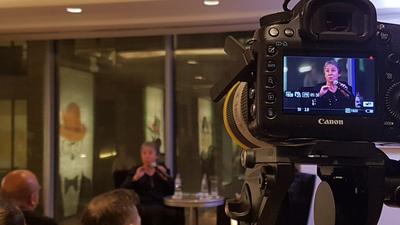Three weeks of fighting raging throughout much of South Sudan are having increasingly serious consequences for the country’s people, says Médecins Sans Frontières/Doctors Without Borders (MSF).
With the increase in people’s needs, with resources made more scarce following the departure of many international organisations, and with instability hindering the aid response, what was already a difficult situation has become even worse.
Highly vulnerable
“Highly vulnerable people have just become even more vulnerable,“ said Raphael Gorgeu, MSF’s head of mission in South Sudan. “We don’t know what will happen to the thousands of displaced and wounded people across the country.”
Even before the recent fighting broke out in December, 80 percent of healthcare and basic services in South Sudan were provided by non-governmental organisations.
“Today, there is a high risk of epidemics,” adds Gorgeu, “and if the fighting prevents us from gaining rapid and safe access to people in need – especially to pregnant women and children – conditions will quickly deteriorate.”
About 70,000 people, mostly women and children, have fled to the town of Awerial having escaped clashes between government and rebel troops in Bor.
© Judy Waguma/MSF
Emergency teams
MSF‘s emergency teams are currently working in Juba, Awerial and Malakal to provide medical care to more than 110,000 people displaced from their homes by the fighting.
At the same time, MSF is continuing wherever possible to run its much-needed regular medical projects across the country, despite the current instability and shortages of drugs to treat patients and fuel to run generators.
During the past three weeks, MSF medical teams have provided 26,320 consultations, admitted 1,014 patients to its medical facilities, treated 426 people with gunshot wounds and carried out 126 surgeries. MSF teams have also delivered more than 40 tons of medical and logistical supplies to its projects.
Before the crisis, people in South Sudan had limited access to healthcare, with most pregnant women unable to give birth in a medical facility, with limited treatment and vaccination options for large numbers of children, and with refugees receiving the bare minimum of assistance.
MSF is extremely concerned by the deteriorating security conditions for aid organisations across South Sudan.
Despite this, MSF remains committed to continuing to provide assistance in South Sudan, and calls on all parties to the conflict to respect its medical facilities and staff and to allow people to access medical care, irrespective of their origin or ethnicity.
MSF in South Sudan
MSF has been working in the region that today constitutes the Republic of South Sudan since 1983, and currently runs 16 projects in nine of the country’s ten states – Agok, Aweil, Bentiu, Gogrial, Gumuruk, Leer, Maban, Malakal, Nasir, Yambio, Lankien, Yuai and Yida and has set up three additional emergency operations in Juba, Awerial and Malakal.
MSF responds to emergencies, including large-scale displacement, refugee influxes, alarming nutrition situations and peaks of disease such as measles , malaria, acute watery diarrhoea and kala azar, in addition to providing basic and specialist healthcare services. MSF currently has 228 international staff working in its projects alongside 2,917 South Sudanese staff.




